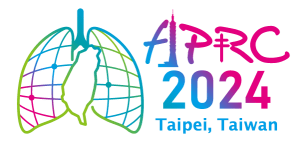Symposium 10:Treatment Strategies for Acute Respiratory Distress Syndrome due to Coronavirus Disease 2019
Acute respiratory distress syndrome (ARDS) is a severe pulmonary disease with high mortality. Besides the traditional protective lung ventilation strategy, recent treatment modalities have shown promising results. High-flow nasal cannula is employed in early ARDS due to Coronavirus disease 2019 (COVID-19). Besides the survival benefits in moderate to severe ARDS, prone positioning has been widely applied for COVID-19 patients, either intubated or non-intubated. Extracorporeal membrane oxygenation (ECMO) has also been used largely in patients with COVID-19 with acute respiratory distress syndrome during the pandemic. This symposium will discuss and summarize the evidence and recommendations about the three aforementioned treatment modalities for ARDS, especially due to COVID-19. The speakers will also share their clinical experiences in treating ARDS patietns.
| Time (GMT+8) |
Topic | Speaker | Country / Region |
|---|---|---|---|
| 14:50-15:20 | High-flow nasal cannula for ARDS | Dr. Li-Kuo Kuo | Taiwan |
| 15:20-15:50 | Prone Positioning for ARDS | Dr. Ming-Cheng Chan | Taiwan |
| 15:50-16:20 | Extracorporeal membrane oxygenation for ARDS | Dr. Shu-Min Lin | Taiwan |
High-flow nasal cannula for ARDS
Abstract:
The use of high-flow nasal cannula (HFNC) in adult patients with acute hypoxemic respiratory failure has continuously increased especially in COVID-19 pandemic. New category of non-intubated ARDS is created for patients on HFNC at ⩾30 L/min who otherwise meet ARDS criteria in a recently published global definition of ARDS. Recent research in ARDS gradually focused on the importance of identifying clinical and biological features subphenotypes in ARDS patients. Different subphenotypes might have different outcomes and response to specific therapies including HFNC. Here we will introduce and review the most recent improvement in application of HFNC to patients with ARDS.
Dr. Li-Kuo Kuo

Taiwan
Prone Positioning for ARDS
Abstract:
Acute Respiratory Distress Syndrome (ARDS) remains a significant challenge in critical care medicine, characterized by severe hypoxemia, diffuse pulmonary inflammation, and respiratory failure. Over the years, prone positioning has emerged as a promising intervention to improve oxygenation and outcomes in patients with ARDS.
Numerous studies and clinical trials have investigated the impact of prone positioning on ARDS outcomes. Meta-analyses of these trials consistently demonstrate significant improvements in oxygenation metrics, including PaO2/FiO2 ratio and oxygenation index, in patients placed in the prone position compared to those in the supine position. Furthermore, prone positioning has been associated with a reduction in mortality rates, although the magnitude of these benefits may vary depending on patient characteristics and the timing of prone sessions.
The physiological mechanisms underlying the efficacy of prone positioning are multifactorial and include more uniform ventilation-perfusion matching, reduced lung stress and strain, improved drainage of secretions, and attenuation of ventilator-induced lung injury. Additionally, recent evidence suggests that early initiation of prone positioning within the first 48 hours of ARDS onset may confer greater benefits compared to delayed prone positioning.
Despite its benefits, prone positioning is not without limitations and potential complications, such as pressure sores, endotracheal tube displacement, and hemodynamic instability. Careful patient selection, adequate sedation and paralysis, and meticulous positioning protocols are essential to mitigate these risks and optimize the effectiveness of prone positioning.
In conclusion, prone positioning represents a valuable adjunctive therapy in the management of ARDS, offering significant improvements in oxygenation, ventilation, and mortality outcomes. Early application, adherence to lung protective strategy, and longer duration (at least 16 hours/day) are keys to the successful management of ARDS with prone positioning.
Dr. Ming-Cheng Chan

Taiwan
Extracorporeal membrane oxygenation for ARDS
Abstract:
Extracorporeal membrane oxygenation (ECMO) has been widely used to provide respiratory and hemodynamic support to acute respiratory distress syndrome (ARDS) patients with severe hypoxemia. Recent studies have investigated the potential survival benefits of ECMO in patients with COVID-19 related ARDS and have shown that ECMO might be beneficial in some instances. However, ECMO is an invasive treatment with various complications that requires extensive monitoring and management. Indeed, the mortality of patients with COVID-19-associated ARDS managed with ECMO may be attribute to the involvement of experienced teams to decrease the rates of complications. This presentation aims to elucidate the associations between the use of ECMO and clinical outcomes of COVID-19 patients with ARDS.
Dr. Shu-Min Lin

Taiwan
Prof. Chung-Chi Huang

Taiwan
Curriculum Vitae
Office Address: 5 Fu-Shin Street, Kweishan, Taoyuan County, Taiwan
Language: Chinese, Taiwanese, English
Employment Record:
July 1986 ~ June1989, Residency in Department of Internal Medicine
July 1989 ~ June 1991, Fellowship in Division of Pulmonary Medicine
July 1991 till now, Attending Physician in Division of Pulmonary Medicine
Academic Appointment:
Aug 2001 till now, Chief, Respsiratory Therapy Department
July 2002 till now, Associate Professor, Chang Gung Memeorial Hospital
Jan 2004 till now, Associate Professor, Chang Gung University
Dec 2010 till now, Director, Department of respiratory care, Chang Gung University
August 2011 till now, Professor, Chang Gung University
July 2012 till now, Professor, Chang Gung Memeorial Hospital
Board Certification:
July 1990 Medical specialist in internal medicine, ROC
Dec 1991 Medical specialist in pulmonary and critical care medicine
Dec 1998 Specialist in Emergency and critical care medicne
Dec 1999 Specialist in critical care medicne, ROC
Professional Affiliations:
1. Society of internal medicine, ROC
2. Pulmonary and critical care medicine
3. Society of critical care medicine, ROC
4. Society of emergency and critical care medicine
5. Society of ultrasonic medicine
6. Society of family medicine, ROC
Research Interest:
1. Chest medicine
2. Critical Care Medicine
Dr. Chin-Pyng Wu

Taiwan
Dr. Shih-Chi Ku

Taiwan




